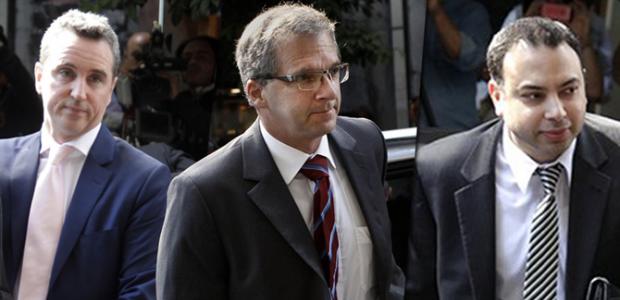The country’s creditor representatives, back in Athens following the Easter break, are currently holding talks with Production Reconstruction, Environment and Energy Ministry personnel over pending energy-related issues as part of the wider effort being made for Greece to obtain another tranche of needed bailout funds, if the government’s economic overhaul plan is deemed credible.
Based on demands set by the recently elected leftist Syriza-led government, the meetings are continuing to take place at hotels, while emails are also being exchanged in the overall effort.
According to energypress sources, the visiting technocrats are continuously escalating the pressure being applied on the Greek government, scrutinizing all information and responses being provided by Greek officials.
The creditor representatives are referring to the same agenda of pending issues as the one relied on prior to Greece’s January 25 snap elections, while also making note of any concessions offered by the energy ministry.
The energy ministry, itself, is going no further than to provide any relevant information requested by the creditor representatives, and is not submitting to any form of negotiations, according to energypress sources.
Creditor representatives are persisting to focus on pending electricity market reforms along the way to the target model, such as the new CATs (Capacity Availability Tickets); NOME-type auctions; and accessibility to lignite and water sources by third parties beyond PPC, Greece’s power utility. The creditor representatives are also addressing the retail gas market’s liberalization.
Explanations are also being demanded for the motives behind recent decisions taken by the energy ministry, such as its cancellation of an Emission Reduction Tariff (ETMEAR) surcharge hike that had been planned by RAE, Greece’s Regulatory Authority for Energy, as well as the ministry’s declared intention to limit the authority’s powers.
The ministry has remained vague in its overall responses during these ongoing talks with creditor representatives. For example, responding to questioning on how it plans to go about dealing with a European Court verdict against PPC for its monopolized control of lignite sources, energy ministry officials have gone no further than to say that various options will be examined, without offering a finalized plan. The country’s previous administration had decided to part-privatize PPC in response to the court decision against the power utility’s lignite-source control. The plan had been endorsed by the European Commission.
At this stage, the appraisal process being conducted by creditor representatives appears to be reaching its end. No doubt, the pressure for meetings with the energy ministry’s leadership for face-to-face negotiations, currently being avoided by the Greeek side, can be expected to intensify from now on.





